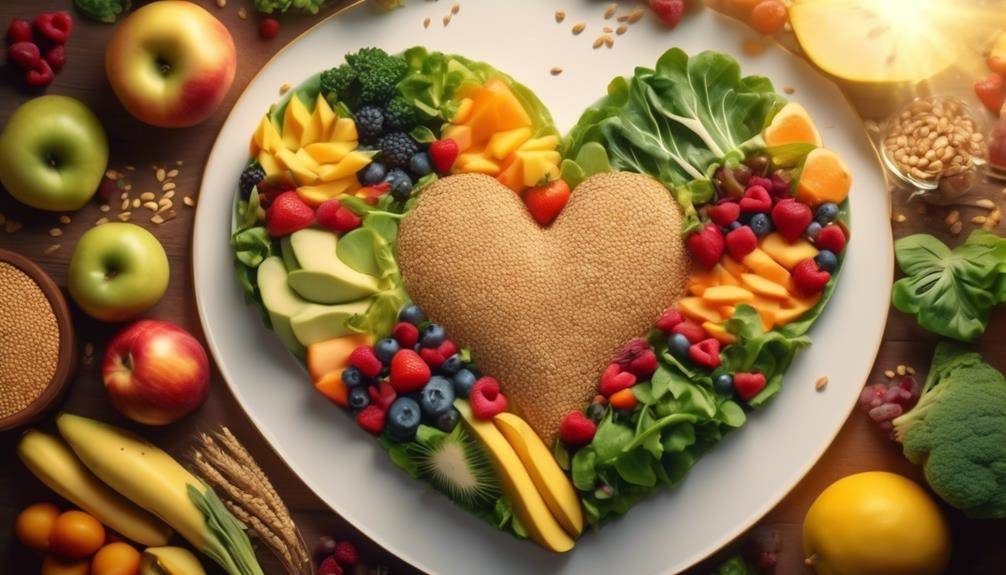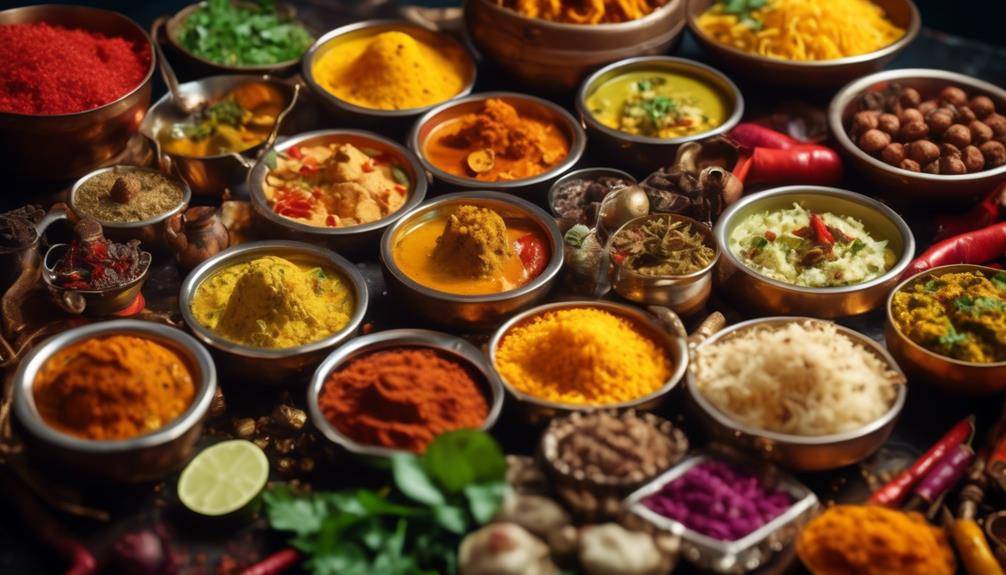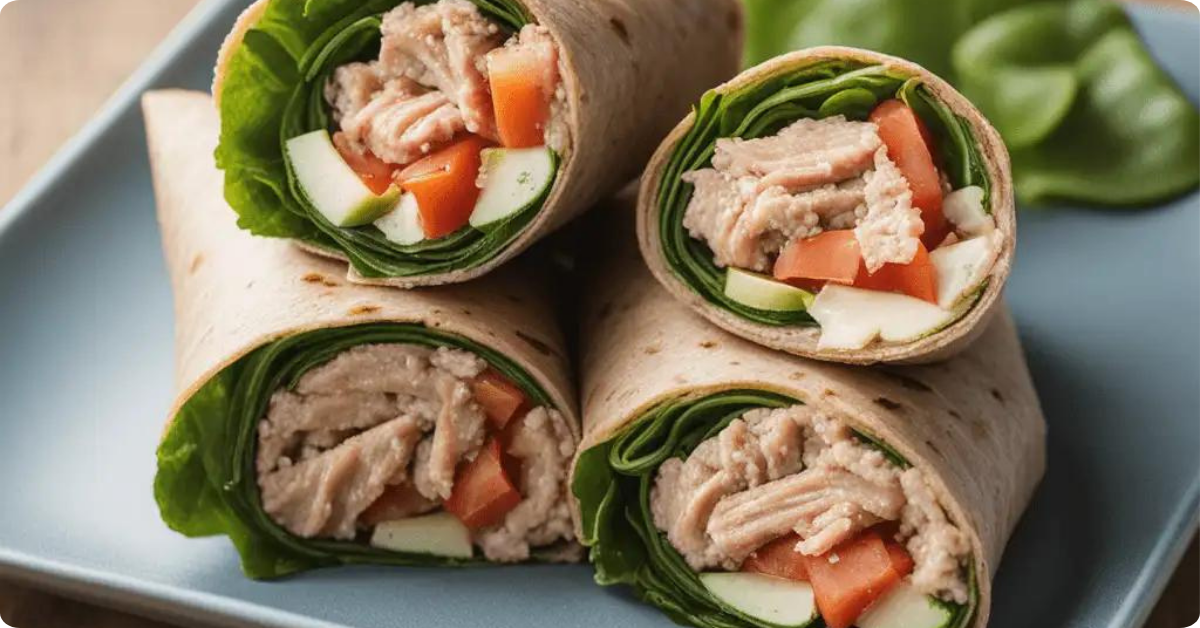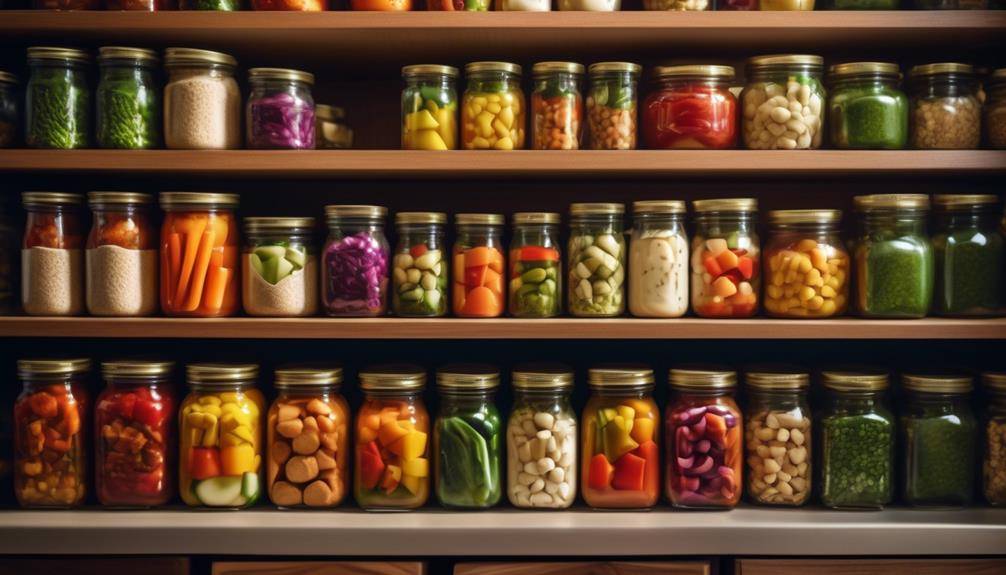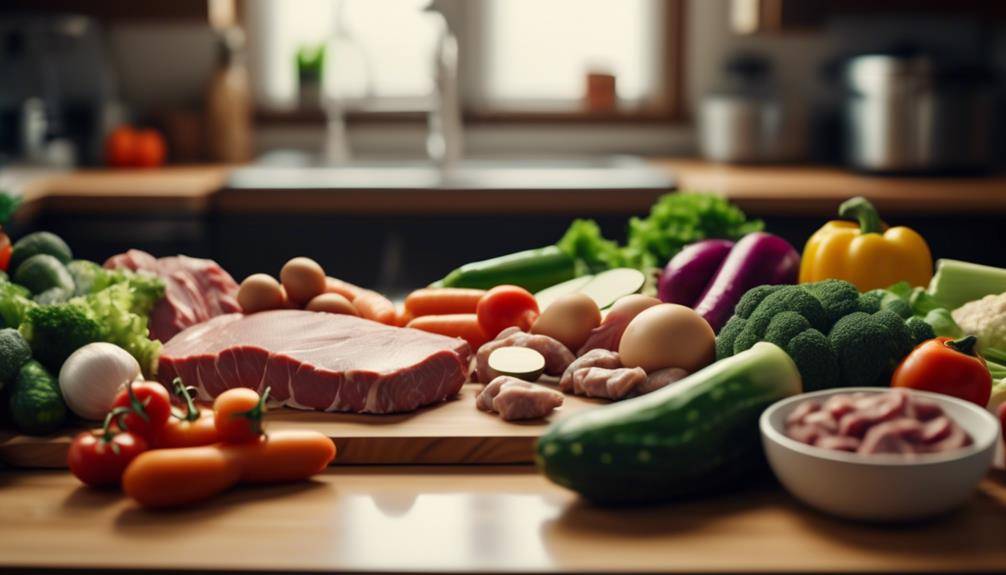Important Vegan Dietary Needs for Athletes
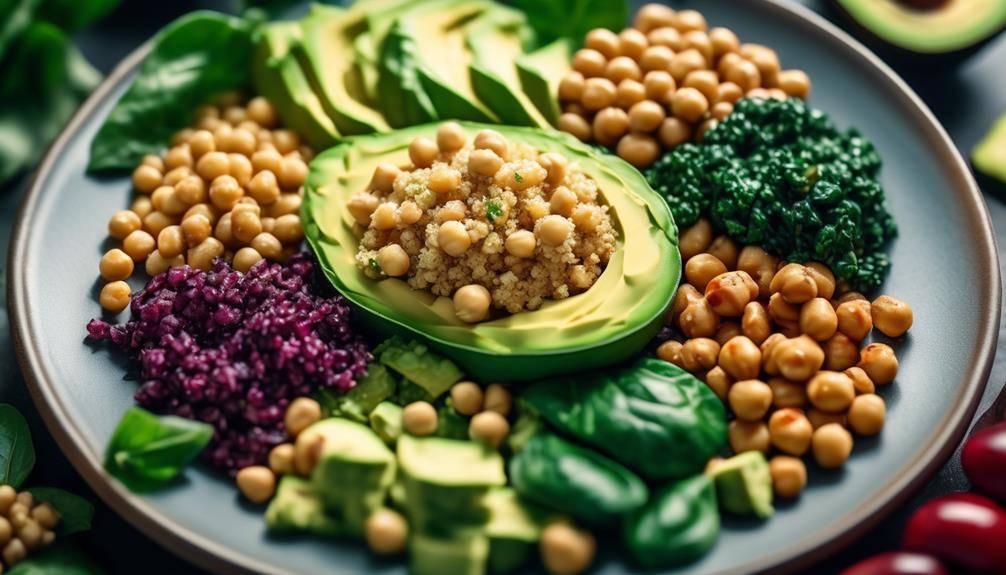
Important Vegan Dietary Needs for Athletes; Imagine you’re an athlete training for a marathon. You’ve put in countless hours of sweat and dedication, and now it’s race day. As you line up at the starting line, you can’t help but notice the diverse array of athletes around you. Among them, you spot a vegan runner who’s just as fit and determined as the rest. This begs the question: how do vegan athletes meet their dietary needs to perform at their best?
In this discussion, we’ll explore the unique challenges faced by vegan athletes and uncover the strategies they employ to fuel their bodies and achieve peak performance. Get ready to discover the secrets behind a plant-powered athleticism that will leave you motivated and enlightened.
Protein Requirements for Vegan Athletes
To meet the protein requirements of vegan athletes, it is crucial to carefully plan and incorporate a variety of plant-based protein sources into your diet. Contrary to popular belief, it is entirely possible to meet your protein needs without consuming animal products. In fact, many plant-based foods are rich in protein and can provide all the essential amino acids your body needs to build and repair muscles.
When it comes to vegan protein sources, legumes are a great option. Beans, lentils, and chickpeas are not only high in protein but also packed with fiber and other important nutrients. Additionally, tofu and tempeh, both made from soybeans, are excellent sources of protein and can be used in a variety of dishes.
In order to ensure you are getting enough protein as a vegan athlete, it is important to follow protein intake guidelines. The Academy of Nutrition and Dietetics recommends that athletes consume 1.2 to 2.0 grams of protein per kilogram of body weight per day. For example, if you weigh 70 kilograms, your protein intake should be between 84 and 140 grams per day.
To achieve this, you can incorporate a variety of plant-based protein sources into your meals. For instance, you can have a tofu scramble with vegetables for breakfast, a lentil salad with quinoa for lunch, and a dinner rich in beans and legumes. Snacks like nuts, seeds, and protein-rich energy bars can also help you meet your daily protein needs.
Essential Vitamins and Minerals for Optimal Performance
Eating a balanced vegan diet that includes essential vitamins and minerals is crucial for optimal performance as an athlete. While a vegan diet can provide all the necessary nutrients, it is important to be mindful of potential nutrient deficiencies. Here are some vegan diet guidelines to ensure you are meeting your vitamin and mineral needs for optimal athletic performance.
One essential nutrient for athletes is iron. Plant-based iron sources include beans, lentils, tofu, and dark leafy greens like spinach and kale. However, the non-heme iron found in plant foods is not as easily absorbed as heme iron from animal sources. To enhance iron absorption, pair iron-rich foods with vitamin C-rich foods like citrus fruits or bell peppers.
Another important nutrient is calcium, which supports bone health and muscle function. Good vegan sources of calcium include fortified plant-based milks, calcium-set tofu, almonds, and fortified orange juice. Remember to aim for the recommended daily intake of 1000-1200 mg of calcium.
Vitamin B12 is another nutrient that may be lacking in a vegan diet. It is crucial for energy production and red blood cell formation. While plant-based foods are not reliable sources of vitamin B12, you can find it in fortified plant-based milks, breakfast cereals, and nutritional yeast. Consider taking a B12 supplement to ensure you meet your needs.
Omega-3 fatty acids are important for reducing inflammation and improving recovery. While fish is a common source of omega-3s, you can obtain them from plant-based sources like flaxseeds, chia seeds, and walnuts. However, the conversion of these plant-based omega-3s to the active forms (EPA and DHA) may be limited. Therefore, consider adding an algae-based omega-3 supplement to your diet.
Balancing Macronutrients on a Plant-Based Diet
When it comes to optimizing your athletic performance on a vegan diet, it is essential to find the right balance of macronutrients. As a vegan athlete, you need to ensure that you are meeting your caloric needs and getting enough protein, carbohydrates, and fats from plant-based sources.
Protein is crucial for muscle repair and growth, and as a vegan athlete, you have plenty of plant-based protein alternatives. Foods like tofu, tempeh, seitan, lentils, chickpeas, and quinoa are excellent sources of protein. Incorporating a variety of these foods into your meals will help you meet your protein needs.
Carbohydrates are your body’s primary source of energy, so it is important to include enough in your diet. Whole grains, fruits, vegetables, and legumes are all rich in carbohydrates. These foods provide you with the energy you need to fuel your workouts and recover afterward.
Healthy fats are also essential for your overall health and athletic performance. Sources of plant-based fats include avocados, nuts, seeds, and olive oil. These fats provide energy, support hormone production, and help with nutrient absorption.
To ensure that you are meeting your caloric needs, it is important to listen to your body and monitor your energy levels. If you find that you are consistently low on energy, it may be a sign that you need to increase your caloric intake.
Importance of Hydration for Vegan Athletes
To perform at your best as a vegan athlete, it is essential to understand the importance of proper hydration. Hydration plays a crucial role in maintaining optimal performance, preventing fatigue, and aiding in recovery. To meet your water intake recommendations, aim to drink enough fluids throughout the day, and consider incorporating electrolyte-rich foods and beverages into your diet. Additionally, implementing effective hydration strategies during workouts can help keep you hydrated and performing at your peak.
Water Intake Recommendations
Staying properly hydrated is crucial for vegan athletes to optimize their performance and overall well-being. When it comes to water intake recommendations, here are some best practices for staying hydrated during exercise:
- Drink water before, during, and after your workout to replenish fluids lost through sweat.
- Aim to consume at least 8-10 cups (64-80 ounces) of water each day, or more if you engage in intense physical activity.
- Monitor your urine color to gauge your hydration level. Pale yellow urine indicates proper hydration, while dark yellow urine may suggest dehydration.
Electrolyte Balance Tips
Ensuring proper electrolyte balance is essential for vegan athletes to maintain optimal hydration levels and support their overall performance. Electrolytes play a crucial role in regulating fluid balance, muscle function, and nerve impulses. When you exercise, especially in hot and humid conditions, you lose electrolytes through sweat. Failure to replace these electrolytes can lead to an imbalance, causing symptoms such as muscle cramps, fatigue, and even impaired performance.
As a vegan athlete, it’s important to choose electrolyte replacement options that align with your dietary choices. Fortunately, there are several plant-based sources of electrolytes, including coconut water, bananas, and leafy green vegetables. Additionally, you can consider using electrolyte supplements specifically designed for vegans. By maintaining proper electrolyte balance, you can optimize your hydration levels and enhance your athletic performance.
Hydration Strategies for Workouts
Proper hydration is crucial for vegan athletes to maintain optimal performance and support their overall well-being, especially during workouts. Here are some hydration techniques and electrolyte replenishment strategies to help you stay properly hydrated:
- Drink plenty of water: Water is the best way to stay hydrated during workouts. Aim to drink at least 8-10 cups of water per day, and increase your intake during intense exercise or hot weather.
- Include electrolyte-rich foods: Electrolytes like sodium, potassium, and magnesium are essential for maintaining hydration. Include foods such as bananas, avocados, coconut water, and leafy greens in your diet to replenish these electrolytes naturally.
- Consider sports drinks: If you’re engaging in prolonged or intense workouts, you may benefit from sports drinks that contain electrolytes. Look for vegan-friendly options that don’t contain artificial additives or sweeteners.
Remember to listen to your body’s thirst cues and adjust your fluid intake accordingly. By following these hydration strategies, you can ensure optimal performance and support your vegan athlete lifestyle.
Pre and Post-Workout Fueling Strategies for Vegans
To optimize your performance and recovery as a vegan athlete, it is essential to have effective fueling strategies before and after your workouts. Proper fueling ensures that your body has the necessary nutrients to perform at its best and recover efficiently. When it comes to pre-workout fueling, incorporating vegan protein powders and high carb snacks can provide the energy and nutrients your body needs to excel.
Vegan protein powders are a convenient and effective way to increase your protein intake before a workout. They are typically made from plant-based sources such as peas, rice, or hemp, and offer a complete amino acid profile necessary for muscle repair and growth. Consuming a protein shake or smoothie containing vegan protein powder about 30-60 minutes before your workout can help stimulate muscle protein synthesis and enhance performance.
In addition to protein, consuming high carb snacks before your workout can provide a quick source of energy. Opt for snacks such as a banana, dates, or a small serving of whole grain toast with nut butter. These snacks are easily digestible and rich in carbohydrates, which are the primary fuel source for your muscles during exercise. Including a small amount of healthy fats, like those found in nut butter, can help slow down digestion and provide sustained energy throughout your workout.
Post-workout fueling is equally important for recovery and replenishing glycogen stores. Again, vegan protein powders can play a vital role in muscle repair and growth. Consuming a protein shake or smoothie containing vegan protein powder within 30 minutes of your workout can help kickstart the recovery process and promote muscle protein synthesis.
Pairing your post-workout protein with a high carb snack can further enhance recovery. Consider options like a piece of fruit, a bowl of oatmeal, or a sweet potato. These foods provide carbohydrates to replenish glycogen stores and aid in muscle recovery.
To optimize your performance and recovery as a vegan athlete, focus on incorporating vegan protein powders and high carb snacks before and after your workouts. These fueling strategies will provide the necessary nutrients to support your athletic endeavors. Remember to listen to your body and adjust your fueling strategies based on your individual needs and goals.
Vegan Sources of Energy for Endurance Athletes
For endurance athletes following a vegan diet, incorporating plant-based sources of energy is crucial to fueling your performance. Fortunately, there are plenty of vegan fueling options that can provide you with the energy you need to power through your workouts and races. Here are three plant-based energy sources that can help you optimize your performance:
- Whole Grains: Whole grains such as quinoa, brown rice, and oats are excellent sources of complex carbohydrates, which are the primary fuel source for endurance activities. These grains provide a steady release of energy and are also rich in fiber, vitamins, and minerals that support overall health.
- Legumes: Legumes such as lentils, chickpeas, and black beans are not only high in protein but also packed with carbohydrates. They offer a combination of both slow-release and fast-release energy, making them ideal for sustained endurance activities. Additionally, legumes are rich in iron and other essential nutrients that support muscle function and recovery.
- Nuts and Seeds: Nuts and seeds, including almonds, walnuts, chia seeds, and flaxseeds, are excellent sources of healthy fats and protein. These nutrient-dense foods provide a concentrated source of energy and can help you stay satiated during long training sessions. They are also rich in omega-3 fatty acids, which have anti-inflammatory properties and promote cardiovascular health.
Incorporating these plant-based energy sources into your diet can help you meet your nutritional needs as an endurance athlete. Remember to consume them in combination with other nutrient-dense foods to ensure a well-rounded diet. Experiment with different vegan fueling options to find the ones that work best for you and support your performance goals.
Recovery and Muscle-Building Tips for Vegan Athletes
To optimize your recovery and muscle-building as a vegan athlete, it’s important to focus on plant-based protein sources that provide all the essential amino acids your body needs. Incorporate foods like tofu, tempeh, lentils, quinoa, and hemp seeds into your meals and snacks. Additionally, pay attention to nutrient timing by consuming protein-rich meals or snacks within 30 minutes to an hour after your workout. If needed, consider using supplements like pea protein powder or BCAAs to meet your protein needs and support muscle repair and growth.
Plant-Based Protein Sources
Including a variety of plant-based protein sources in your diet can support muscle recovery and growth for vegan athletes. Here are some options to consider:
- Legumes: Beans, lentils, and chickpeas are excellent sources of protein. They are also high in fiber, which aids digestion and promotes satiety.
- Whole grains: Quinoa, brown rice, and oats are not only rich in protein but also provide essential nutrients like iron and B vitamins.
- Nuts and seeds: Almonds, walnuts, chia seeds, and hemp seeds are packed with protein, healthy fats, and antioxidants.
While these plant-based protein sources can help meet your protein needs, it may be beneficial to incorporate plant-based protein supplements into your diet, especially if you have higher protein requirements or struggle to meet them through whole foods alone. Vegan protein powders made from sources like pea, hemp, or rice can be a convenient option to support your muscle recovery and growth.
Optimal Nutrient Timing
To optimize recovery and promote muscle-building as a vegan athlete, strategically timing your nutrient intake can play a crucial role in achieving your goals. Proper meal timing can enhance nutrient absorption and maximize the benefits of your plant-based diet. One important aspect of nutrient timing is consuming a post-workout meal or snack within 30 minutes to one hour after exercise.
This window of time is when your body is most receptive to replenishing glycogen stores and repairing muscle tissue. Including a combination of carbohydrates and plant-based protein in this post-workout meal can enhance muscle recovery and growth. Additionally, spacing out your meals evenly throughout the day can help maintain a steady supply of nutrients for sustained energy and muscle-building. Remember to listen to your body’s hunger and fullness cues to determine the appropriate meal frequency and portion sizes for your individual needs.
Supplements for Recovery
Supplementing your plant-based diet with specific nutrients can aid in recovery and muscle-building for vegan athletes. Here are three supplements that can support your recovery:
- Protein powder: Vegan athletes often struggle to meet their protein needs, especially during the recovery period. Protein powders made from plant sources such as pea, hemp, or rice can provide a convenient and easily digestible source of protein to support muscle repair and growth.
- BCAAs: Branched-chain amino acids (BCAAs) are essential for muscle recovery and growth. Vegan athletes can find BCAA supplements derived from plant sources like soy or fermented vegetables, which can help reduce muscle soreness and enhance recovery.
- Vegan recovery drinks: These specialized drinks often contain a mix of carbohydrates, electrolytes, and other nutrients to replenish energy stores and aid in muscle recovery. Look for vegan recovery drinks made from natural ingredients to support optimal recovery after intense workouts.
Frequently Asked Questions: Important Vegan Dietary Needs for Athletes
Can Vegan Athletes Meet Their Protein Requirements Solely Through Plant-Based Sources?
You can meet your protein requirements as a vegan athlete solely through plant-based sources. Vegan protein sources like tofu, tempeh, legumes, and quinoa are rich in protein and can support your muscle growth and recovery.
Are There Any Specific Vitamins and Minerals That Vegan Athletes Need to Pay Extra Attention To?
As a vegan athlete, you need to pay extra attention to specific nutrient needs. Make sure your meal plans include plant-based protein sources and focus on getting enough vitamins and minerals for optimal performance.
How Can Vegan Athletes Ensure They Are Getting Enough Carbohydrates and Fats for Optimal Performance?
To ensure optimal performance, vegan athletes should focus on meal planning and nutrient timing. Incorporate sources of carbohydrates like whole grains, fruits, and vegetables, and healthy fats like nuts, seeds, and avocados into your diet.
Is Hydration Equally Important for Vegan Athletes as It Is for Non-Vegan Athletes?
Hydration is just as important for vegan athletes as it is for non-vegan athletes. Staying properly hydrated is crucial for optimal performance. Incorporate hydration strategies into your vegan diet to ensure you’re performing at your best.
What Are Some Pre and Post-Workout Fueling Strategies Specifically Tailored for Vegan Athletes?
To fuel your workouts as a vegan athlete, focus on nutrient-dense plant-based foods. Incorporate vegan workout supplements like protein powder and B12. Monitor nutrient deficiencies and manage them with a well-balanced vegan diet.
Conclusion
In conclusion, vegan athletes can meet their dietary needs by focusing on protein-rich foods, ensuring adequate intake of essential vitamins and minerals, and balancing macronutrients on a plant-based diet. Hydration is also crucial for optimal performance. Pre and post-workout fueling strategies should be tailored to vegan preferences, and endurance athletes can find energy sources from vegan options. Finally, recovery and muscle-building tips should be implemented for overall success in vegan athletes’ athletic endeavors.



